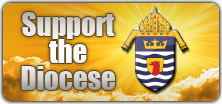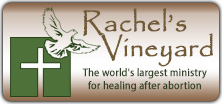Bishop Provost has sent the following letter to the Clergy of the Diocese of Lake Charles on the important contribution of the Catechism of the Catholic Church. He also felt that the Catholic faithful of the Diocese would be interested in reading this reflection and its message.
The Solemnity of the Most Sacred Heart of Jesus
June 8, 2018
Dear Reverend Fathers, Deacons, and Seminarians of the Diocese of Lake Charles
May the Most Sacred Heart of Jesus be for you a constant source of strength and encouragement!
Twenty-five years ago last October, the Catechism of the Catholic Church was promulgated. I am writing to you, during this year-long observance of the anniversary of this important work’s publication, to encourage your use of its rich contents. The use of this important resource, I sense, has particular urgency given the malaise and confusion so often expressed today by our parishioners about doctrinal matters.
To say that requests for clarification on certain points of Catholic teaching have increased recently is an understatement. Good, Catholic lay faithful have approached me with increasing frequency, either in conversation or in writing, about their concerns and puzzlement over Church doctrine mostly generated by exposure to the media.
My office over the years has consistently received requests of this sort on the topic of the liturgy. However, now the confusion involves Church doctrine. For any of us, who love the Church, this is disconcerting. That the Catholic faithful sense a lack of clarity in fundamentals of doctrine, such as the Eucharistic Presence, the indissolubility of sacramental marriage, the existence of hell, the nature of sin, the consequences of moral choice, and the authority of the Sacred Scriptures, is distressing to me, as a Bishop, and it should be to you, as a parish priest. I will not touch upon the causes of this confusion because they are numerous. However, we have a duty to protect and proclaim Divine Revelation, as received from our Lord Himself, expressed in Sacred Scripture and Sacred Tradition and proclaimed by the authentic Magisterium of the Catholic Church.
In October of 1992, Pope St. John Paul II issued the Apostolic Constitution Fidei depositum, on the publication of the Catechism of the Catholic Church. In the opening sentence of the document, Pope St. John Paul II wrote, “Guarding the Deposit of Faith is the mission which the Lord entrusted to His Church, and which she fulfills in every age.” The Holy Father later asked in the document that “… all the Church’s Pastors and the Christian faithful … receive this catechism in a spirit of communion and to use it assiduously in fulfilling their mission of proclaiming the faith and calling people to the Gospel life. This catechism is given to them that it may be a sure and authentic reference text for teaching catholic doctrine…. It is also offered to all the faithful who wish to deepen their knowledge of the unfathomable riches of salvation (cf. Ephesians 3:8).”
The Catechism of the Catholic Church remains an indispensable source to assist in dispelling the confusion that exists today. Please use it yourself and encourage your parishioners to do so as well. When questions arise, consult it. When parishioners approach you with questions on fundamental teachings, guide them to the correct answer by utilizing this rich resource.
The truths of the faith are not clarified in casual “tweets.” Nor are they officially communicated by informal interviews granted to popular journalists. They are certainly not treated fairly in the speculations of dubious theologians and self-proclaimed experts. When I want a diagnosis on my physical health, I go to the doctor. I may consult the electronic media or inquire about the experiences of my neighbor, but when I want accuracy and truth concerning my condition, I go to the expert in the context of his or her expertise. A doctor may give me a casual opinion or speculative assessment when we meet in the grocery store or at a social gathering. Nothing, however, substitutes for the professional judgment of a physician who has examined the patient, administered the appropriate tests, formulated a well-informed diagnosis and with the best interests of the patient in mind assigned a treatment. Similarly, when I want an articulation of Church teaching, it is not found in agenda-driven journals or the opinions of disgruntled protestors, off-the-cuff remarks or media interviews.
Furthermore, the truths of the faith do not originate in my preferences or some contemporary discernment presumed more enlightened. The truths of the faith
originate in the salvific Will of God, revealed fully in Jesus Christ and officially taught by the Church, without prejudice and with abiding charity. St. Paul wrote prophetically to St. Timothy, “For the time will come when people will not tolerate sound doctrine but, following their own desires and insatiable curiosity, will accumulate teachers and will stop listening to the truth and will be diverted to myths. But you, be self-possessed in all circumstances; put up with hardship; perform the work of an evangelist; fulfill your ministry” (2 Timothy 4:3-5). St. Paul understood well, for he saw it happening in his own day, that there is always a tendency to deviate from the truth. The truth is compromised when our “own desires” take precedence. The truth does not originate in the self. Revelation by its very definition is a gift.
St. Paul felt so strongly about this teaching that he addressed a scathing condemnation to those who pervert the truth of the Gospel: “But even if we or an angel from heaven should preach a gospel other than the one that we preached to you, let that one be accursed! As we have said before, and now I say again, if anyone preaches to you a gospel other than the one that you received, let that one be accursed!” (Galatians 1:8-9).
At moments such as these in our history, we must courageously live by the truth as revealed by God in Jesus Christ and taught by His Church down through the centuries. The truths of our faith are a most prized possession. We must not treat them dismissively nor should we view them as a personal preference. We should approach them with respect and reverence, as having come from the font of Divine Revelation. The Catechism of the Catholic Church is a most dependable and trustworthy articulation of these revealed truths. And we have, as ministers of the Church and shepherds of the flock, a most serious obligation to ensure that the Deposit of Faith is communicated in all charity and with all the accuracy and brilliance of truth that it deserves.
Praying for all of you who join me in this blessed ministry and thanking you for your commitment in service, I remain
Devotedly yours in our Lord,
![]() Glen John Provost
Glen John Provost
Bishop of Lake Charles
















